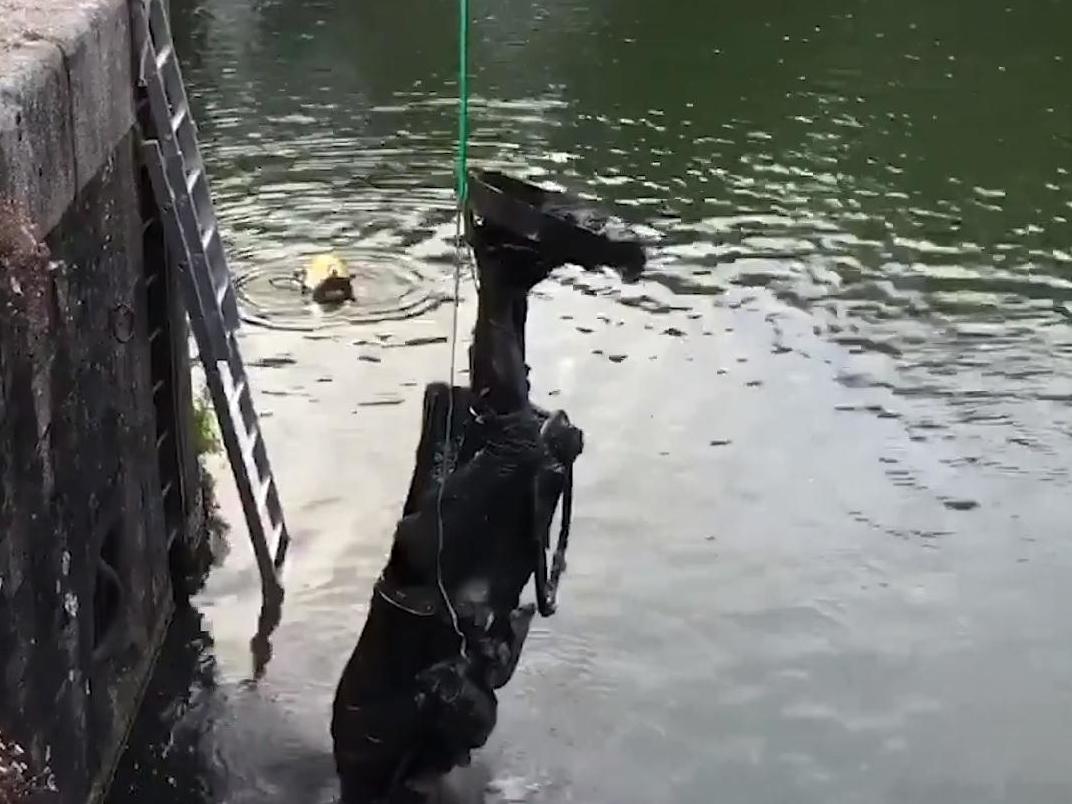John Hamilton: New Zealand tears down statue of British colonialist and city’s namesake
It comes after a Maori tribe elder threatened to remove the statue himself
Your support helps us to tell the story
From reproductive rights to climate change to Big Tech, The Independent is on the ground when the story is developing. Whether it's investigating the financials of Elon Musk's pro-Trump PAC or producing our latest documentary, 'The A Word', which shines a light on the American women fighting for reproductive rights, we know how important it is to parse out the facts from the messaging.
At such a critical moment in US history, we need reporters on the ground. Your donation allows us to keep sending journalists to speak to both sides of the story.
The Independent is trusted by Americans across the entire political spectrum. And unlike many other quality news outlets, we choose not to lock Americans out of our reporting and analysis with paywalls. We believe quality journalism should be available to everyone, paid for by those who can afford it.
Your support makes all the difference.A city in New Zealand has taken down its statue of a former British naval officer, becoming the latest country to reassess elements of its colonial past amid the Black Lives Matter protests sweeping the globe.
Authorities in the city of Hamilton removed a bronze statue of Captain John Fane Charles Hamilton – the city’s namesake – who is accused of killing indigenous Maori people in the 1860s.
The removal of the statue came after a Maori tribe requested it to be taken down, with one elder threatening to tear it down himself if officials did not act.
Cities around the world are taking steps to remove statues that represent cultural or racial oppression following the killing of unarmed black man George Floyd by a white police officer in Minneapolis.
Demonstrations have taken place across the UK and there are concerns over the protection of monuments after a statue of slave trader Edward Colston was pulled down and dumped in Bristol’s harbour.
Hamilton mayor Paula Southgate said in a statement that a growing number of people found the statue personally and culturally offensive.
She said: “We can’t ignore what is happening all over the world and nor should we.
“At a time when we are trying to build tolerance and understanding between cultures and in the community, I don’t think the statue helps us to bridge those gaps.”
The city was originally called Kirikiriroa by the indigenous Maori people but it was renamed in the 1860s after Captain Hamilton, a British officer who was killed in the infamous Gate Pa battle in the city of Tauranga.
The statue was gifted to the city in 2013 and the Waikato-Tainui tribe, or iwi, formally requested on Thursday for it to be removed.
City authorities said it was clear the statue was going to be vandalised after Maori elder Taitimu Maipi this week told media website Stuff that he planned to tear it down himself.
Mr Maipi said Hamilton was being represented as a hero when he was “murderous” and a “monster”.

City authorities said they have no plans to change the city’s name at this point.
Hamilton is the nation’s fourth-largest city with 160,000 people, about one-quarter of whom are Maori.
Earlier this week, a statue of 18th century slave trader Robert Milligan was taken down by workers in east London following pressure from campaigners.
Demonstrators in Belgium have also called on authorities to remove a statue of King Leopold II who is accused of killing millions of Congolese more than a century ago.
Leopold is increasingly seen as a stain on the nation where he reigned from 1865 to 1909. Protesters want him removed from public view.
Additional reporting by agencies

Join our commenting forum
Join thought-provoking conversations, follow other Independent readers and see their replies
Comments